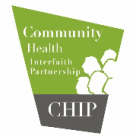September is Suicide Prevention Month and Sept. 7-013 is National Suicide Prevention Week. The American Association of Suicidology gives us a wonderful guide for creating action around suicide prevention, intervention, and postvention. It’s really easy! Take a look and see what small (or large) action you can take to make a difference. Download the Suicide Prevention Week Information & Media Kit containing fact sheets, warning signs, public service announcements, publicity ideas, a press release script, a proclamation script, and references. Visit the AAS website www.suicidology.org. Down load the kit AAS Prevention Week Kit
Did You Know? Georgia Help Guide for Children with Behavior & Learning Challenges
Georgia Appleseed is thrilled to share its Beta version of Georgia Help Guide for Children with Behavior and Learning Challenges. These Guides include one- to two-page informational handouts. The guides are meant to be easily accessible to readers of different abilities and shareable. Topics include IEPs, Section 504, Student Support Teams, and School Discipline. Please read and help us share these guides!
That Awkward Conversation: How do you respond when someone replies to "How are you?" with "Not doing so well..." Watch this helpful short video about responding.
Have resources at hand to help a person you suspect is in crisis...
Call the Georgia Crisis and Access Line 1-800-715-4225 to access mental health and addictive disease crisis services and speak with someone who can help any time of the day or night.
The Georgia Mental Health Consumer Network operates 3 Peer Support, Wellness, and Respite Centers. Learn about this good alternative to hospitalization for people who need help. Visit GMHCN.org
Nearly 70 percent of Americans take at least one prescription drug each month. The majority of medications are safe but many have the potential to cause serious side effects. This easy to navigate online database is constantly being updated with drug recall news, and provides comprehensive, unbiased information about serious side effects, complications, and interactions of commonly prescribed drugs. www.rxdangers.com
Find help for older adults on this special website.
Call 211 United Way for emergency referrals-- for more comprehensive material go to the website.
Directories of Drug and Alcohol Services and Mental Health Services are in the resources section of this website www.chipgeorgia.com
Lutheran Suicide Prevention Ministry available now at lutheransuicideprevention.org This ministry was organized to answer questions and be an "e-resource" for anyone who is feeling suicidal, anyone who has lost someone to suicide, and to communities and faith-based organizations who want to educate their members on risks of suicide, hoe to help, and how to support those with mental health issues in a caring, compassionate way.
The Alcohol Awareness Council recommends Georgia Drug Abuse Treatment information at Drugabuse.com from the Coaliition Against Drug Abuse.
DBHDD List of treament and support services sortable by need and zip code.
Note that the Department of Behavioral Health and Developmental Disabilities and other state of Georgia government agencies may refer to matters of mental and addictive illness under the umbrella of behavioral health.
Suicide Prevention Coalitions in Georgia
Substance Abuse Treatment Facility Locator and Mental Health Services & Treatment Locator
Find alcohol and drug abuse treatment or mental health treatment facilities and programs around the country at findtreatment.samhsa.gov/TreatmentLocator/.
AddictionCenter.com Addiction Center, provides information on addictions to alcohol, tobacco, and illicit and prescription drugs and offers connections with hundreds of treatment centers across the United States.
Find a list of signs and symptoms that a person might need to seek the help of a mental health professional Here
The Georgia Mental Health Consumer Network operates 3 Peer Support, Wellness, and Respite Centers. Learn about this good alternative to hospitalization for people who need help. Visit GMHCN.org
Nearly 70 percent of Americans take at least one prescription drug each month. The majority of medications are safe but many have the potential to cause serious side effects. This easy to navigate online database is constantly being updated with drug recall news, and provides comprehensive, unbiased information about serious side effects, complications, and interactions of commonly prescribed drugs. www.rxdangers.com
Find help for older adults on this special website.
Call 211 United Way for emergency referrals-- for more comprehensive material go to the website.
Directories of Drug and Alcohol Services and Mental Health Services are in the resources section of this website www.chipgeorgia.com
Lutheran Suicide Prevention Ministry available now at lutheransuicideprevention.org This ministry was organized to answer questions and be an "e-resource" for anyone who is feeling suicidal, anyone who has lost someone to suicide, and to communities and faith-based organizations who want to educate their members on risks of suicide, hoe to help, and how to support those with mental health issues in a caring, compassionate way.
The Alcohol Awareness Council recommends Georgia Drug Abuse Treatment information at Drugabuse.com from the Coaliition Against Drug Abuse.
DBHDD List of treament and support services sortable by need and zip code.
Note that the Department of Behavioral Health and Developmental Disabilities and other state of Georgia government agencies may refer to matters of mental and addictive illness under the umbrella of behavioral health.
Suicide Prevention Coalitions in Georgia
Substance Abuse Treatment Facility Locator and Mental Health Services & Treatment Locator
Find alcohol and drug abuse treatment or mental health treatment facilities and programs around the country at findtreatment.samhsa.gov/TreatmentLocator/.
AddictionCenter.com Addiction Center, provides information on addictions to alcohol, tobacco, and illicit and prescription drugs and offers connections with hundreds of treatment centers across the United States.
Find a list of signs and symptoms that a person might need to seek the help of a mental health professional Here

